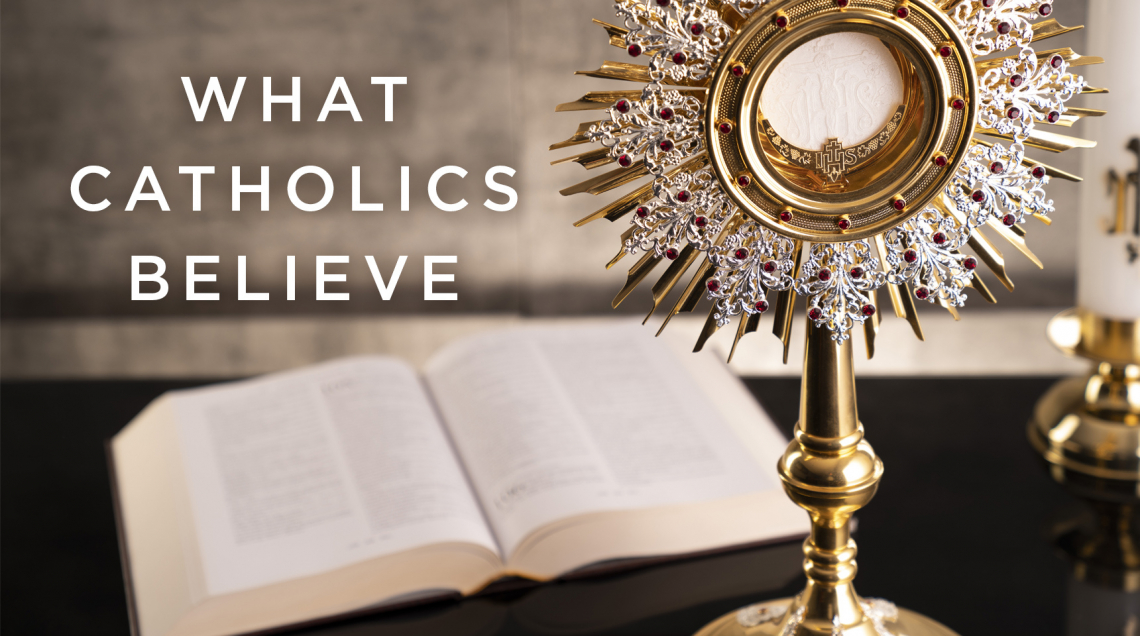The Mass: "Now, what do I do?"

Many people wonder what they are meant to be doing at various points during Mass. In some cases, the answer is obvious. At some points, we are meant to sing together. At other points, we are meant to answer the priest’s words addressed to us. At other times, we are actively listening to the Scripture readings or to the homily. Finally, very often, we are praying to God with the words we are saying or hearing. Pointing out the obvious is not always enough, however. The goal of our participation at Mass is not simply to do what everyone else is doing. The goal for each of us is what the Constitution on the Sacred Liturgy of the Second Vatican Council called “full, conscious, and actual” participation.
What does the Church mean by that? Full participation means joining in the action of the Mass with all our senses and with all our powers of comprehension. So, it means looking at what is taking place, not reading something else during that time or looking away from the altar. It means listening attentively to what is sung or said so as to be able to remember what has been sung or spoken. It means sitting, standing, kneeling, bowing, genuflecting, and realizing that these postures also signify something in relationship to God. I sit in order to listen better to what is said. I stand because something important is happening. I bow to show my humility before God. I genuflect in order to show reverence before the presence of Jesus Christ in the Eucharist. I kneel in humble prayer before the God who made me. We are intended to use all our senses and our whole body when we participate at Mass.
Conscious participation means that my mind is also working during the celebration of Mass. Conscious participation is the opposite of unconscious participation! We all have the experience of being in a gathering and having our mind wander to the point where we lose track of the conversation. We have “tuned out” at a certain point. In a society of soundbites and short attention spans, staying focused on what is being said and what is happening for 50 minutes can be a challenge for many people. And yet, there are great rewards to those who make the effort to consciously follow the unfolding of God’s plan of salvation before our eyes during the celebration of Mass.
Actual participation means I am really taking part in what is going on. (Some people use the term “active” participation. I prefer “actual” participation.) It is always possible to be at an event and not really be present to what is going on. My body is there, but my mind and heart are not there. Sitting in the church is not, by itself, participation at Mass. I am meant to actually, really, take part in everything that is going on. That means that I follow what is taking place. I anticipate what will take place next. I respond or sing when it is my turn to do so. I try my best to take in the meaning of the words being said or sung. Actual participation means that I work at being engaged in what is going on before me, especially by thinking about the meaning of what is happening. It means that I work at being engaged with the people who are around me and with God who is speaking to me and offering me the gift of His Son, Jesus.
Full, conscious, and actual participation takes effort and preparation. It doesn’t happen by itself. That’s why it is important to prepare for Sunday Mass in advance. During the week, or at least on Saturday, we can find the Scripture readings of Mass and read them once or twice. We should read them until we have a reasonable idea in our mind of what God is saying to the people who first heard the message and what God is saying to us. Before Mass, either on Saturday evening or Sunday, we can pray briefly at home before leaving for Mass. This reminds us that we are going from home to church to meet the Lord in person and not simply to some social gathering. When we get to church, we can make it a point to greet the other people who are there, especially people we don’t know or whom we have never seen before. That is a very good way to engage more directly with others who will be worshiping God with us. During the course of Mass, we can make an effort to keep our attention on what is going on before us, not on what we left behind at home or at work. Finally, after Mass is over, we can spend time in church or at home praying briefly once again, thanking God for having been blessed with the experience of His living presence one more time.
Full, conscious, and actual participation makes our presence at Mass meaningful and inspiring. It is the way God touches our minds and hearts and draws them to Himself so that we can become more and more like Christ, His Son.
Msgr. Marc B. Caron, S.T.D. is moderator of the curia and vicar general for the Diocese of Portland.










